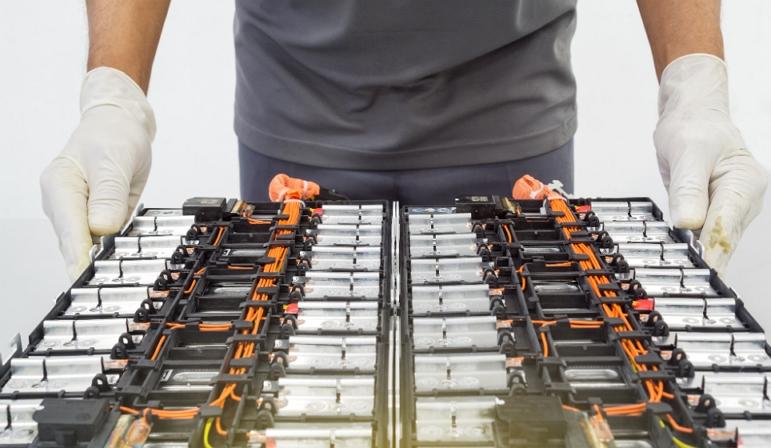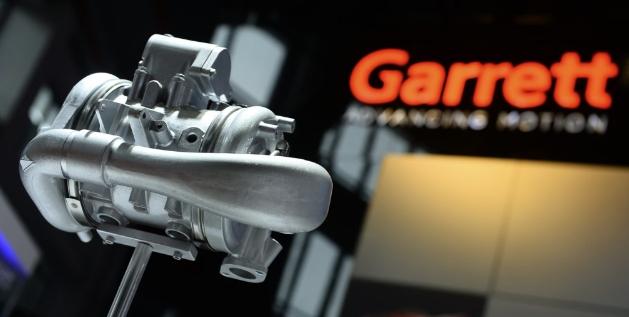Europe aims to attract electric vehicle (EV) battery manufacturers to establish factories within the region. With prominent carmakers like Volkswagen and Stellantis based in Europe, the continent is striving to reduce its reliance on Asian suppliers while also competing with the United States in securing green subsidies.
In addition, Europe is actively seeking to draw in suppliers of components and raw materials necessary for the production of electric vehicles (EVs) and their batteries. The region aims to strengthen its supply chain and enhance its position in the EV industry. Notably, several companies have recently announced significant investments in this regard:
GERMANY
Northvolt, a Swedish company, has announced plans to invest between €3 to 5 billion ($3.30-5.50 billion) in establishing an electric vehicle battery plant in Heide, located in the northern state of Schleswig-Holstein, Germany. However, the investment is contingent on the approval of subsidies. According to a reliable source familiar with the situation, the estimated value of the subsidies exceeds €600 million.
Volkswagen has unveiled its ambitious plans to construct six battery factories across Europe, collectively amounting to a capacity of 240 gigawatt-hours (GWh) by 2030. The company’s inaugural battery plant, known as “SalzGiga,” situated in Salzgitter within the Lower Saxony region, is scheduled to commence production in 2025. Volkswagen’s strategic move signifies a significant commitment to bolstering its battery production capabilities and advancing the electrification of their vehicle lineup.
CATL, a prominent Chinese battery manufacturer, is significantly increasing its production capacity at its plant located near Erfurt in the state of Thuringia, central Germany. CATL has been experiencing rapid expansion beyond China and this move reinforces their commitment to meeting the growing demand for batteries in Europe.
BASF, a German company, is currently constructing a battery materials facility in Schwarzheide, a city in the eastern region of Brandenburg. This investment showcases BASF’s commitment to supporting the battery industry’s growth and development in Germany.
Microvast, a company based in the United States, has established a factory in Ludwigsfelde, situated south of Berlin. This strategic move by Microvast highlights its dedication to expanding its operations in the region and contributing to the advancement of electric mobility.
Automotive Cells Company (ACC), a joint venture between Stellantis, Mercedes Benz (MBGn.DE), and TotalEnergies , has outlined its ambitious investment plan of over €7 billion to establish three gigafactories in Europe. These state-of-the-art facilities, each with a capacity of 40 gigawatt-hours (GWh), are set to be operational by 2030. One of the gigafactories will be strategically located in Kaiserslautern, situated in the western state of Rhineland-Palatinate, Germany. This substantial investment demonstrates the commitment of ACC and its partners to drive the production of electric vehicle batteries and meet the increasing demand for sustainable transportation solutions.
The term “Gigafactory” was popularized by Elon Musk, the CEO of Tesla, and it refers to large-scale battery production plants. These facilities are designed to manufacture batteries in high volumes, catering to the growing demand for electric vehicles and energy storage solutions. The concept of Gigafactories has gained prominence as a key element in accelerating the transition to sustainable transportation and renewable energy systems.
FRANCE
As part of its larger plan to establish three gigafactories in Europe, the joint venture ACC is currently constructing a gigafactory in Billy-Berclau Douvrin, France. The inauguration of this gigafactory is scheduled for May 30, and operations are expected to commence in the second half of the year. This strategic initiative by ACC reflects its commitment to expanding battery production capacity in Europe and meeting the growing demand for electric vehicles.
ProLogium, a Taiwanese company, revealed its plans on May 13 to establish a 5.2-billion-euro plant in Dunkirk, marking its first overseas investment of this kind. Executives from ProLogium mentioned that France provided attractive incentives and competitive power prices, which influenced their decision. This move demonstrates ProLogium’s commitment to expanding its operations globally and meeting the increasing demand for battery production.
Envision, on the other hand, is investing up to €2 billion in its AESC gigafactory located in Douai, near the electric car hub known as “Renault ElectriCity.” The gigafactory is set to have a capacity of 9 gigawatt-hours (GWh) by 2024, with a future target of reaching 24 GWh by 2030. Envision’s investment underscores its dedication to advancing sustainable transportation and supporting the growing electric vehicle market.
Renault ElectriCity consolidates three manufacturing plants of the Renault group located in northern France: Douai, Ruitz, and Maubeuge. This initiative aims to streamline production and enhance efficiency in the manufacturing of electric vehicles.
Verkor, a French start-up, has announced its intention to construct a gigafactory in Dunkirk, with a targeted capacity of 12 gigawatt-hours (GWh). This production capacity would be sufficient to power over 100,000 vehicles. Renault (RENA.PA) is expected to become the largest supplier to Verkor’s gigafactory, further solidifying their commitment to advancing the electric vehicle industry.
SPAIN
In July of last year, Spain, the second-largest car manufacturer in Europe after Germany, entered into a partnership with Envision, a Chinese company, to establish an electric vehicle (EV) battery plant. The plant, valued at €2.5 billion, will be located in Navalmoral de la Mata, situated in the central-western region of Extremadura in Spain. This collaboration reflects Spain’s commitment to strengthening its position in the EV market and advancing sustainable transportation solutions.
In a collaborative effort, German automaker Volkswagen and its partners announced plans last year to invest €10 billion in constructing a battery plant in Sagunto, located near Valencia, Spain. The production at the battery plant is scheduled to commence by 2026. Additionally, Volkswagen intends to manufacture electric vehicles at its two existing car factories in Spain. This strategic investment demonstrates Volkswagen’s commitment to expanding its electric vehicle production capacity and contributing to the growth of the EV market in Spain.
BASQUEVOLT has announced its ambitious plan to invest over €700 million in constructing a plant in the Basque Country. This investment signifies BASQUEVOLT’s commitment to expanding its presence in the region and bolstering the production of electric vehicle batteries.
InoBat, a battery manufacturer from Slovakia, revealed in October of last year that it had signed a declaration of intent with the Spanish government. The agreement aims to establish an electric vehicle battery factory in Valladolid, a city located in central Spain. The project is projected to cost approximately €3 billion, highlighting InoBat’s commitment to advancing sustainable transportation and contributing to the growth of the electric vehicle industry in Spain.
According to a report in the Spanish newspaper Expansion, BYD Co, the largest global seller of electric vehicles (EVs) and plug-in hybrids, is considering seeking financial assistance from the revised government program called PERTE. This scheme aims to promote EV production in China. Similarly, Volkswagen and Renault have expressed their intentions to request funds from the revamped PERTE program. Stellantis and the newcomer AEHRA are also potential candidates to apply for financial support under this scheme.
India’s Tata Group said in February it was looking at Spain or Britain as possible battery factory locations.
ITALY
As part of its extensive investment plan to establish three gigafactories in Europe, the joint venture ACC is allocating over €2 billion to develop a gigafactory in the southern city of Termoli. This ambitious project is set to commence operations in 2026, demonstrating the commitment of ACC to expanding its manufacturing capabilities in the region and contributing to the growth of the electric vehicle industry.
*$1 = €0.9084



